Predators Welcome (Limit Zero, 2024)
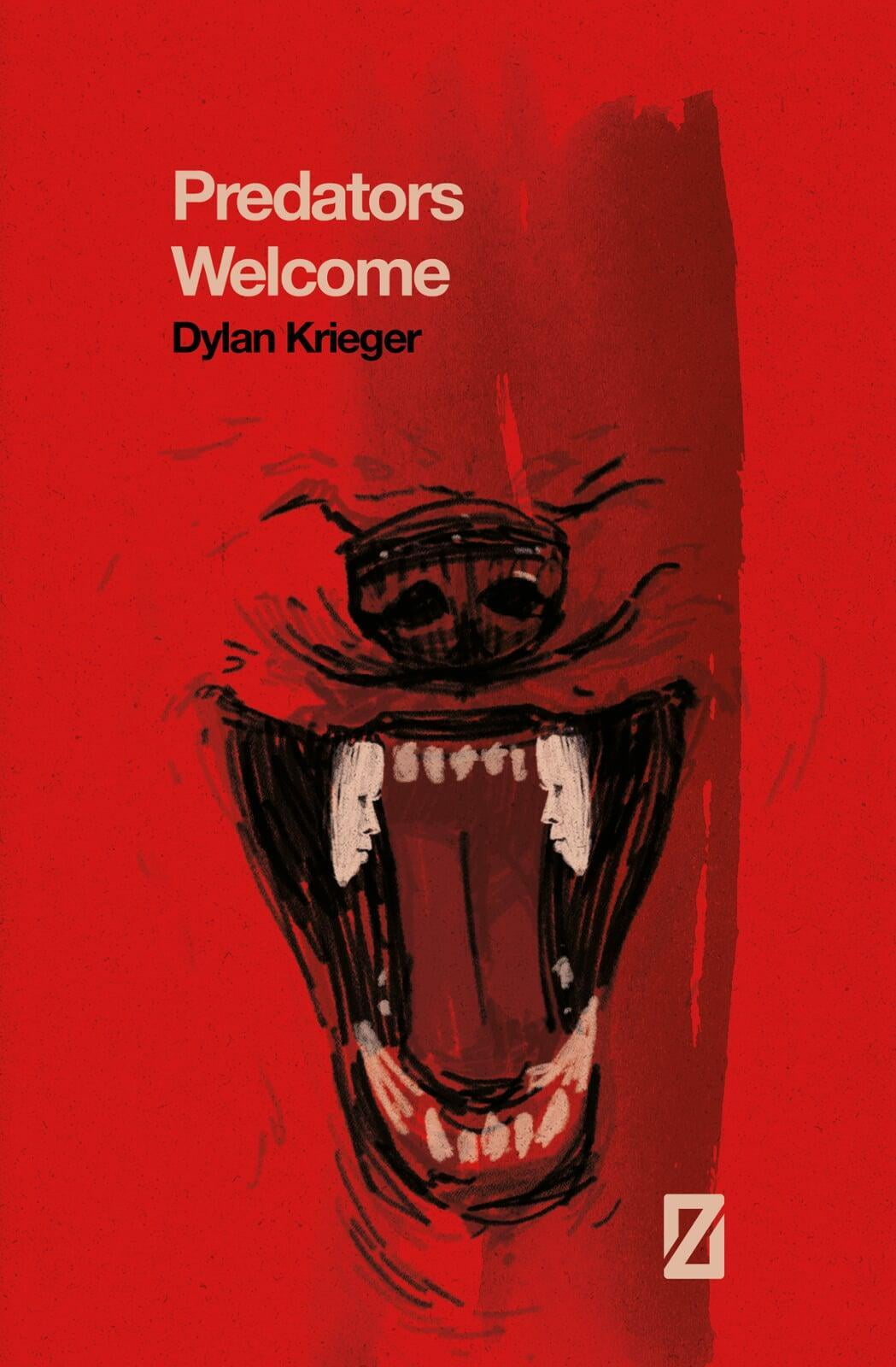
Predators Welcome is a book of poems written by one sibling in search of another. Eager to recover some shared mythology with the rest of the world, the speaker of these poems calls for a witness—any witness—to confirm the frightening cosmologies of childhood were more than just isolated daydreams. Challenging, broadening, and redefining our understanding of predatory animals—and yes, that means us—this book lays bare both personal and societal cycles of violence and neglect, suggesting their intergenerational reenactment is one way we paradoxically prove ourselves to be a single human family, “raised by the same wolves,” with ancestors whose stories must not only be told, but lived and relived. Trapped in such a paradoxical circumstance, the human-as-predator is most dangerous, and yet, most connected to and emboldened by history. In this way, these poems urge us to find commonality not merely in past atrocities, but in a present and future rebellion from historical precedent itself.
Hideous Compass (Underground Books, 2022)
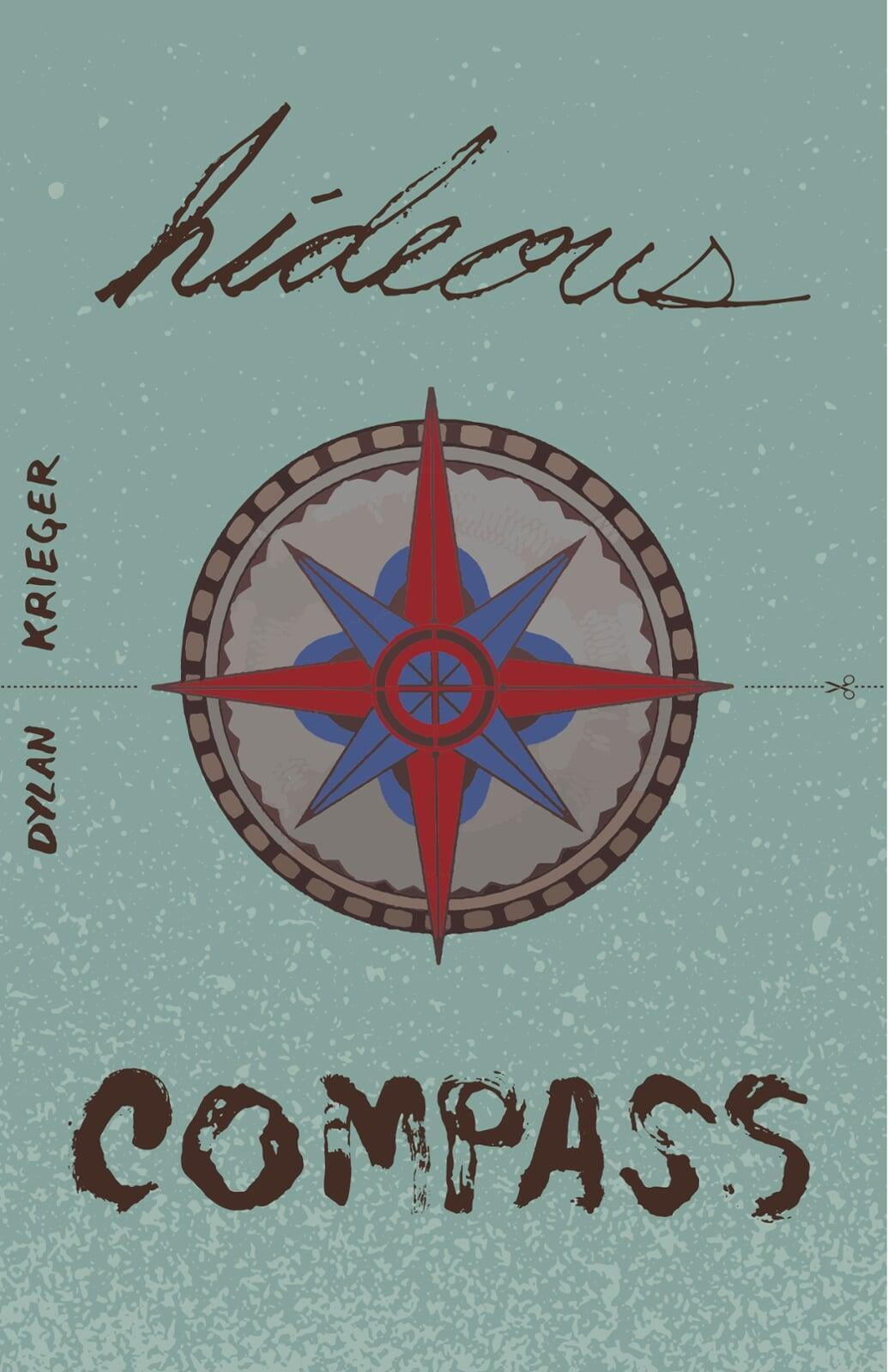
Hideous Compass is a chapbook about the failure of directionality, the failure of beauty, the failure of even “home” to keep us grounded. Cut your compass in two and throw caution out the porthole. (This chapbook can be cut in two, with the top portion forming “part 1” and the bottom portion forming “part 2.”)
Hideous Compass is a chapbook about the failure of directionality, the failure of beauty, the failure of even “home” to keep us grounded. Cut your compass in two and throw caution out the porthole. (This chapbook can be cut in two, with the top portion forming “part 1” and the bottom portion forming “part 2.”)
Soft-Focus Slaughterhouse (11:11 Press, 2021)
In its dense cycles of assonance and internal rhyme, Soft-Focus Slaughterhouse endeavors to mirror the frustrating throb of chronic pain’s flare-ups and remissions, and the corresponding cycles of despair and hope that punctuate their rhythm.
Betraying a personal obsession with the grotesque—volatile and disturbing physical transformations that reveal the body’s radical permeability and capacity for de- and re-formation—these poems explore the challenges posed by seeking treatment for misunderstood or “invisible” conditions, self-medicating, communicating physical needs and limitations in relationships, empathizing versus competing with others in pain, romanticizing silent suffering, and the cruelty of religious solicitations based on divine healing.
Soft-Focus Slaughterhouse is a collection of new poems by Dylan Krieger published in The Collapsar, jubilat, Nine Mile Magazine and West Trade Review.
In its dense cycles of assonance and internal rhyme, Soft-Focus Slaughterhouse endeavors to mirror the frustrating throb of chronic pain’s flare-ups and remissions, and the corresponding cycles of despair and hope that punctuate their rhythm.
Betraying a personal obsession with the grotesque—volatile and disturbing physical transformations that reveal the body’s radical permeability and capacity for de- and re-formation—these poems explore the challenges posed by seeking treatment for misunderstood or “invisible” conditions, self-medicating, communicating physical needs and limitations in relationships, empathizing versus competing with others in pain, romanticizing silent suffering, and the cruelty of religious solicitations based on divine healing.
Soft-Focus Slaughterhouse is a collection of new poems by Dylan Krieger published in The Collapsar, jubilat, Nine Mile Magazine and West Trade Review.
Metamortuary (Nine Mile Books, 2020)
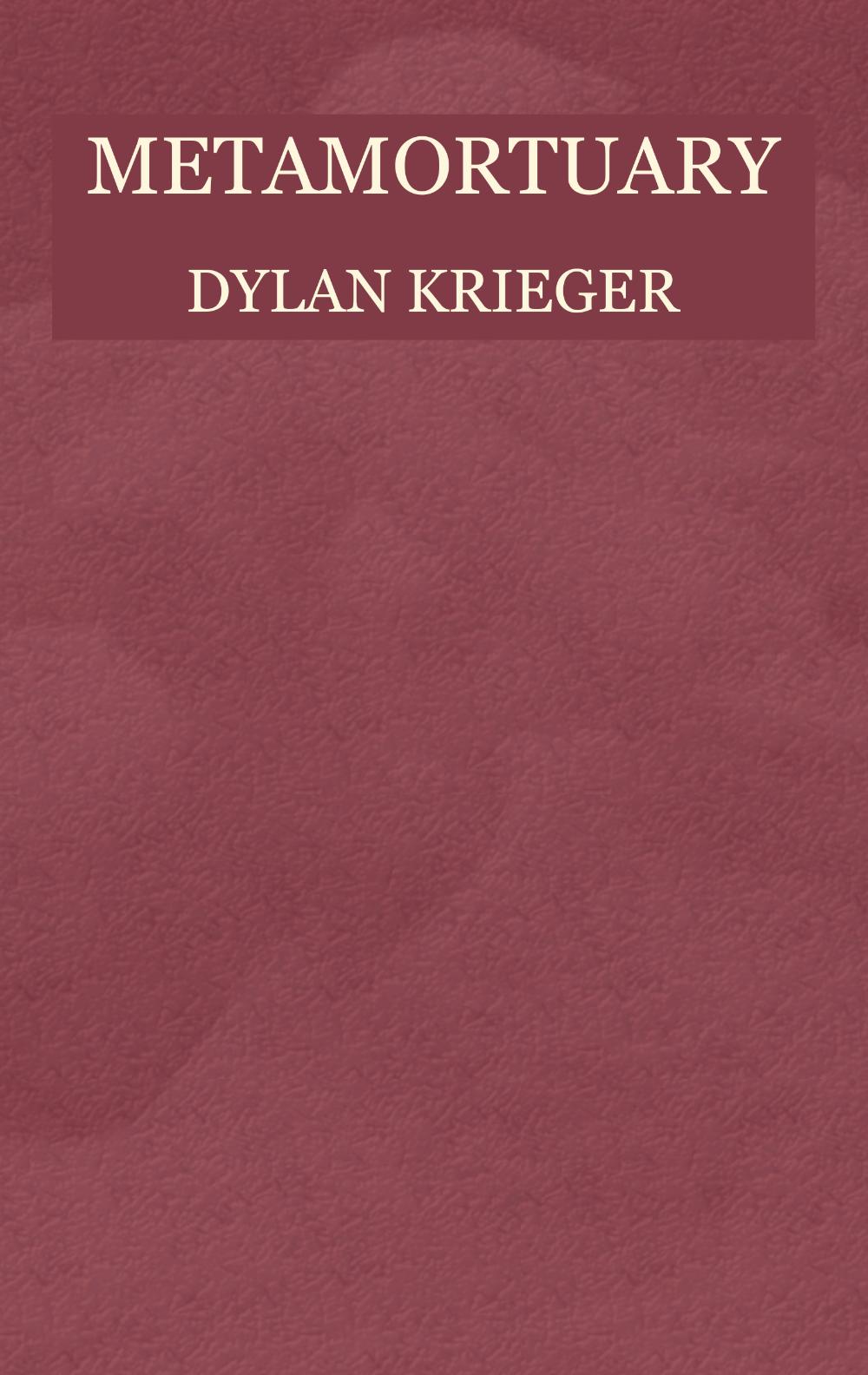
Metamortuary is a book of poems that began as a reimagining of Ovid's Metamorphoses and gradually evolved into a more personal meditation on modern-day transformations that continue to baffle and divide us, ranging from body modification to global warming. Parts of Metamoruary first appeared in Yalobusha Review, Meow Meow Pow Pow, Third Point Press and Moonsick Magazine.
The Mother Wart (Vegetarian Alcoholic, 2019)
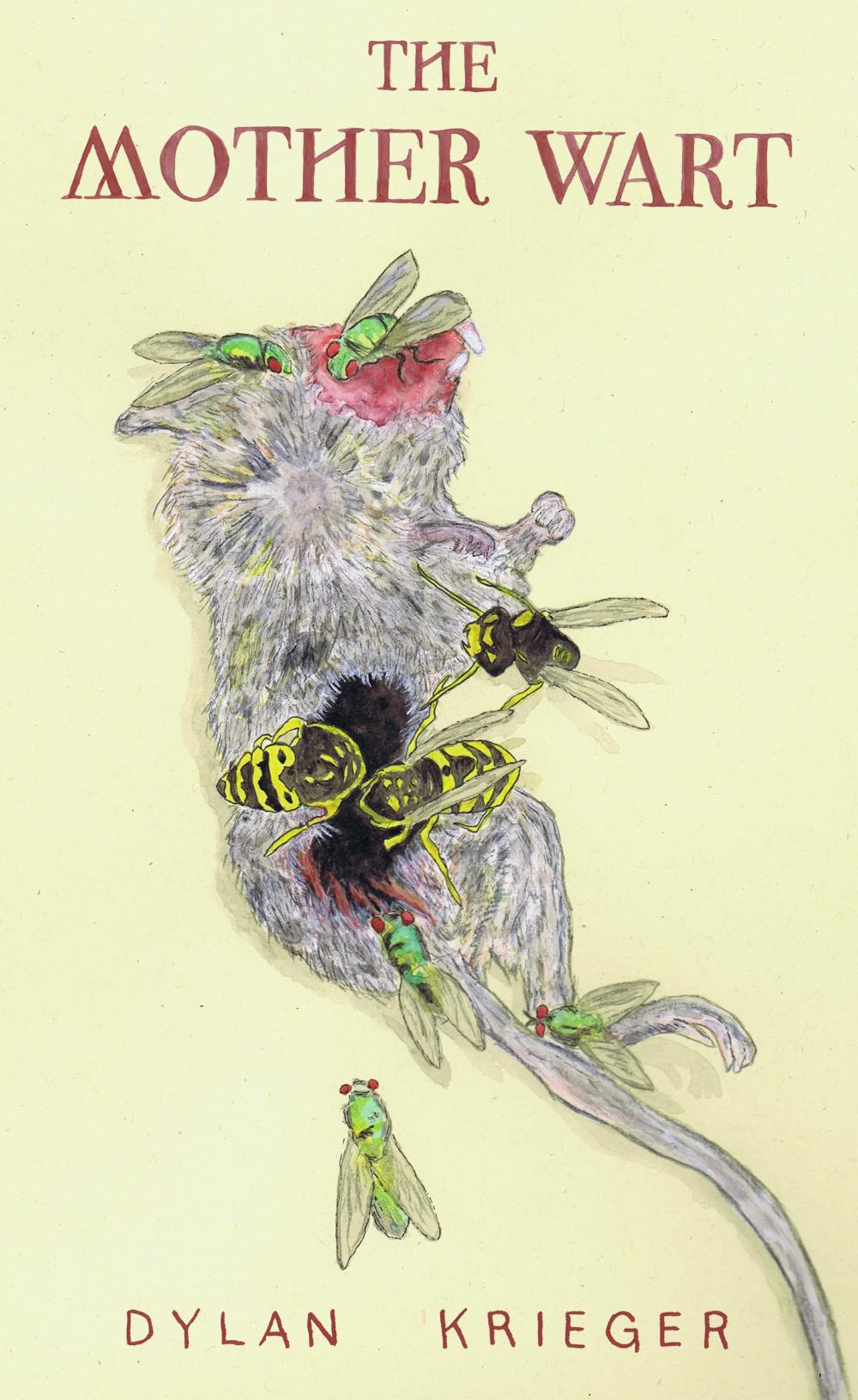
the mother wart (70 pp.) is a book of prose poems loosely based around the tenets of the Church of Euthanasia, whose only commandment--for both ethical and practical reasons--is "thou shalt not breed." Looking beyond the movement's environmental and social goals, the mother wart delves into an autobiographical meditation on early memories and associations with motherhood, childbirth, infancy, and female sexuality, emphasizing the importance of early childhood trauma in the decision to abstain from having children of one's own. In its thick fog of sound play, close-set cycles of internal rhyme evoke a nursery rhyme starting to spin off-kilter, a grade-school chant turned violent and unpredictable. This is the version of the fairy tale in which the witch wins. But here, the witch is also mother, the origins of life transformed into a sign of virus (the wart). The grotesque, therefore, figures heavily throughout these poems, especially in the sense of Mary Russo's The Female Grotesque, which points out the pregnant female body constitutes the epitome of the human form as a site of volatile and irrepressible change--traversing that rare region between revulsion and attraction, in which the two at last appear not so opposed after all, but rather the respective poles of a dividing line that in fact comes full circle if followed far and fearlessly enough.
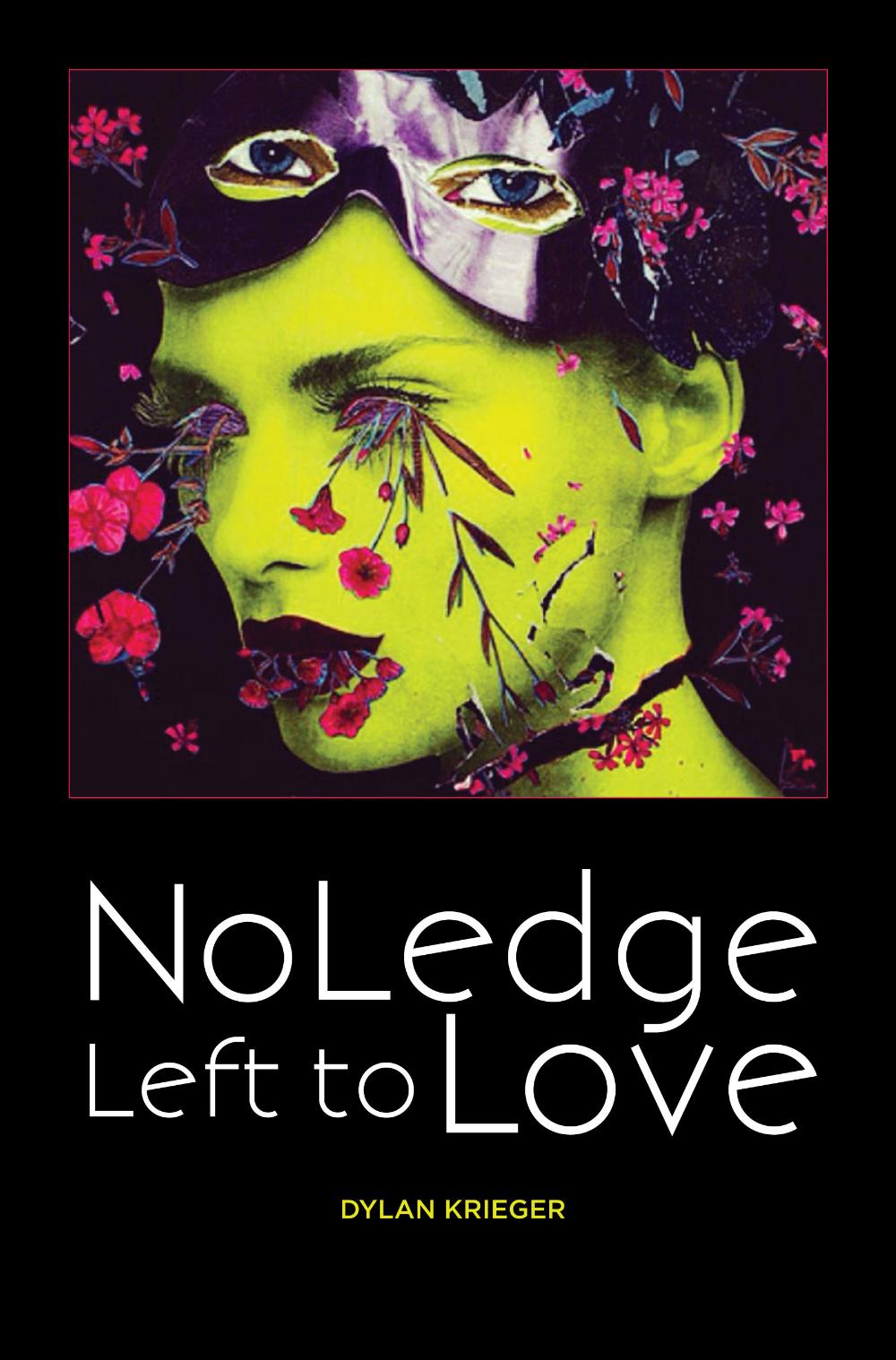
"Dylan Krieger’s no ledge left to love is a book of delirious delights. Cutting across time(s) to fashion a visceral, necessarily disturbing tour of thought experiments and philosophical constructs, Krieger writes with an audacious yet sobering energy. Rife with vertiginous wordplay and transgressive intent, these are poems 'for the savagesphere or wherever next we might emerge after a thousand years cocooning in our eyelashes and sticky furs.'" —Brian Henry
"In No Edge Left To Love, Dylan Krieger deftly ricochets between the philosophical and the grotesque through powerfully direct prose poems that retain hypnotically lyric lines. Smart, visceral, and relentless, Krieger breathlessly hacks at the bloated body of western reason and—through a parade of mouths, derelict deities, and rivers of goo—keeps one hand extended, inviting us to the dance." —Janaka Stucky
"Dylan Krieger is a philosopher, there is no doubt about that, and with a typical philosopher's bravado she takes an analytical exacto knife to the problems of our world. What does she find? Crony Capitalism and systems of oppression and dominance instituted by heterosexual upper class white males in order to keep their hegemony on power. She speaks to us as the voice of the zeitgeist of America, a Greek chorus we have ignored for far too long. And the Greek influence is subtly present, almost undetectable. The metric and rhyme scheme she makes use of will remind readers of the epic poems of old. And this is a new epic poem— not only because it makes deft use of rhyme and pattern—see quantum immortality—but because it traces the heroine's journey from darkness into an even greater darkness. The Odyssey is the story of the last hero from the Greek age of Heroes, no ledge left to love is the story of humanity's last age. Imbued with philosophical concepts and wit—Krieger's tour de force is a trumpet call, but only for those who will hearken to it. Now the question is, will you?" —River Atwood Tabor
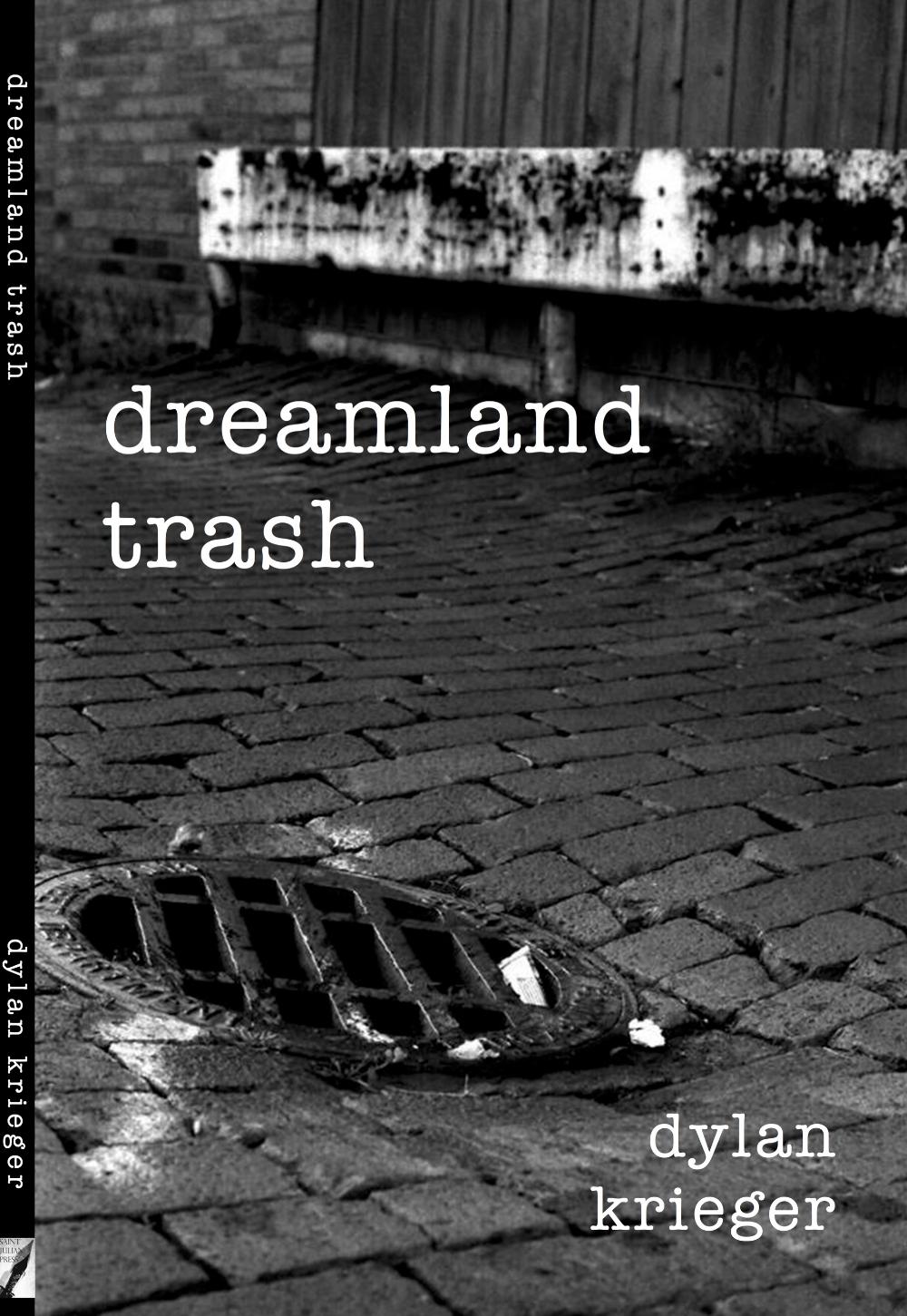
"This is the opposite of a sophomore slump. Like the latest subatomic experiments in above-the-speed-of-light velocity, for a fraction of a second, when the same particle is in two places at the same time, Dylan Krieger will be there and elsewhere. As if Giving Godhead weren't good enough, suddenly she hits out past light-years of stratospheres and reproductive insanities of biology back to the 'invertebrate mother' and the lunacy of a planet organized largely around humanoid self-destruction. The scale becomes both precise and enormous, echoes of things heard as if through water in a glass. You will have to think about the sound of it all for a few days, it is both so familiar and so volatile. dreamland trash is one of the most perfect IED’s ever made." —Thomas Simmons
“'Holding whole generations up at sexpoint,'” dreamland trash is ingenious, witty, and electric. We are just as likely to wake up next to a moaning unicorn as we are to be abducted by deranged YouTube automatic captions. It’s in this derangement that we begin to see the late- capitalist world inside out and upside down, for its cheap thrills and absolute devaluation of the self. Abandon and alienation are rendered in a linguistically dense, gothic style, deeply aware of the 'day-glo chokehold' we are all in." —Sandra Simonds
Giving Godhead (Delete, 2017)
.png)
“If a girl, a virus, a horned animal, milkweed, an exchange of cash for dirty looks, the near-rhyme of greed to death, the names of all brutes, and a shroud in which was wrapped the erect ascendant all met in an ovum and, lodged deep in the earth’s core, fused into a supernova. If, from that long ago time until this very moment—perhaps even into the future—that supernova were listening in on us, her grave canal located such that she were overexposed to US American politicovangelizing, all at once began to speak: this is what she says.” —Danielle Pafunda
“Dylan Krieger is an expert assassin with the messianic fervor of a deconstructed goth-girl, a rogue priestess exorcising and excoriating our tricked-out ‘apocalypse fetish,’ dealing out death-blows ‘quid pro blow.’ These poems are erratic/erotic receivers channeling bad transmissions from our ‘edenic pandemic’—the media clusterfuck, body-as-clickbait, that gaslights women into being their own terror portals. Here unfettered receivership, masochism, and degradation are served as the ultimate limit experience, the euphoria of the self-detonating female body that ejects its own organs so that the whole Christ-addled misfire that is our masculinist moral world ‘might splat.’” —Lara Glenum
“‘… a part of me is always eating part of you…’ This word-drunk, ‘son-drunk’ book of ecstatic technology doesn’t just profane the sacred but also – the much less common – sacralizes the profane, the grotesque, the body in all of its troubling, intoxicating, ruinous splendor. These highly skilled, outrageous poems move at a breakneck speed.” —Johannes Göransson